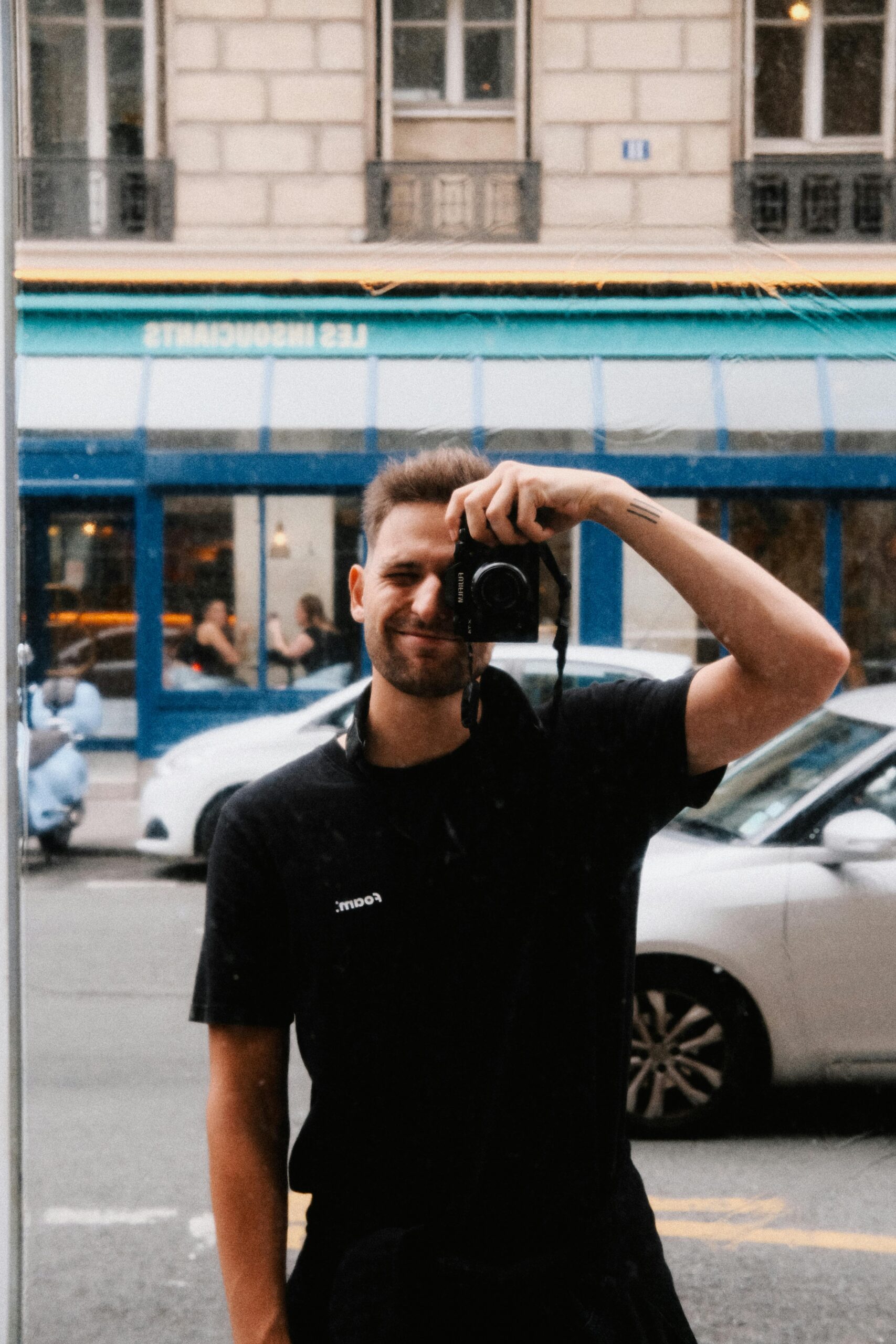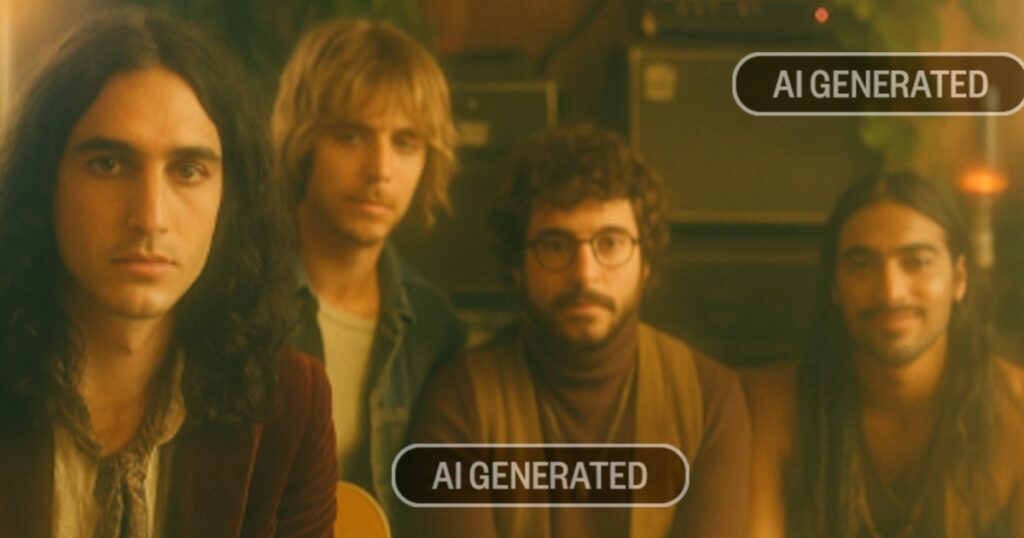Mystery Indie Band Sparks Debate Over AI Authenticity in Music
An indie psych rock band has rapidly gathered over 850,000 listeners on Spotify, igniting discussions within the music industry regarding its authenticity. The Velvet Sundown, a group dedicated to “Saving Modern Rock,” according to its social media, has left even seasoned professionals guessing about its authenticity. The visuals presented by the band appear to be generated by artificial intelligence, but the nature of the music is less clear.
Rick Beato, a music producer with a substantial following on YouTube, highlighted certain “artifacts” in the guitar and keyboard sections of one of the band’s tracks. He noted these could suggest the involvement of AI in the song’s creation.
“This track has many issues, leading me to suspect it might be an AI composition,” Beato stated in a YouTube video after analyzing one of The Velvet Sundown’s songs through Apple’s Logic Pro. “AI tracks typically contain these artifacts.”
Regardless of the band’s true nature, its rise prompts questions about the future of art, culture, and authenticity amidst the growing influence of generative AI. A surge of AI-generated content has already emerged across major tech platforms, including the increasing prevalence of AI influencers on social media.
The Velvet Sundown reportedly made its debut in June, as indicated by its social media accounts. It is marked as a “Verified Artist” on Spotify, lending it credibility. On X, the band teased its forthcoming album, “Paper Sun Rebellion,” while addressing skepticism regarding its origins.
In addition to the swift release of songs, the oddly synthetic promotional visuals of the group members have fueled suspicions of AI involvement.
In a video promoting “Paper Sun Rebellion,” the band countered claims of their inauthenticity, declaring, “You believed the lie and danced to it anyway.”
“They said we’re not real,” they also posted. “Maybe you aren’t either.”
The band’s Spotify biography asserts that it consists of four members: vocalist Gabe Farrow, guitarist Lennie West, synth specialist Milo Rains, and percussionist Orion “Rio” Del Mar. Farrow is also reported to play the mellotron, an electro-mechanical instrument.
“There’s something quietly spellbinding about The Velvet Sundown,” their Spotify bio reflects. “You don’t just listen to them; you drift into them. Their music seeps into your consciousness slowly, like a scent that unexpectedly takes you back.”
Confusion surrounding the band’s origins intensified when social media accounts claiming to represent it began refuting allegations of using AI-generated content. A person who had communicated with a journalist regarding the band later confessed on Substack that their claim of association was deceptive.
The Velvet Sundown clarified that this individual is not affiliated with them “in any way,” stating, “He does not represent us or speak for us.”
On Thursday, the band’s Spotify-linked social media accounts warned that “someone is trying to hijack the identity of The Velvet Sundown by publishing unauthorized interviews and creating fake profiles.”
Inquiries regarding the band’s authenticity were met with silence from Distrokid, the band’s YouTube publisher, and no comments were provided by Spotify.
The quick ascent of The Velvet Sundown underscores contemporary issues related to AI and the challenges of discerning authenticity online. Recent studies have indicated a rise in AI-generated misinformation in images since 2023, and a Consumer Reports investigation found significant gaps in protections against nonconsensual impersonation using AI voice cloning technologies.
According to Deezer, a music streaming platform employing its own system to detect AI-generated content, all tracks by The Velvet Sundown were deemed AI-created. Deezer labels such content to ensure it does not feature in recommended playlists, safeguarding royalties for human artists.
“AI-generated music certainly provides some value, so we want to showcase it,” said Alexis Lanternier, Deezer’s CEO. “However, we want to ensure that remuneration takes a different form.”
Approximately 18% of the tracks uploaded weekly to Deezer—around 180,000 songs—are identified as AI-generated, a threefold increase over the last two years, according to Lanternier.
Suno and Udio, AI music creation platforms, refrained from confirming whether their software produced The Velvet Sundown’s music.
“I think people are getting too engrossed in dissecting whether it’s AI or not, losing sight of the important question: How did it make you feel? How many liked it?” remarked Mikey Shulman, CEO and co-founder of Suno.
Suno’s rights policy states that users subscribed to higher tiers can commercialize and distribute songs on platforms like Spotify without crediting Suno.
“There are Grammy winners who utilize Suno daily in their production work,” Shulman noted.
In a recent launch, Grammy-winning producer Timbaland unveiled an AI artist named TaTa through his new venture, Stage Zero. He described TaTa as neither an “avatar” nor a “character,” underscoring its AI-generated music.
Suno was among two AI companies sued last year by significant record labels, including Universal and Sony Music, for allegedly infringing on copyrights to train their music-generating algorithms. However, reports revealed that negotiations for a licensing arrangement, permitting the use of copyrighted recordings, are underway.
The surge of generative AI in music raises concerns for artists like Kristian Heironimus of Velvet Meadow (distinct from The Velvet Sundown).
“I’ve spent years consistently releasing music and balancing a day job,” Heironimus commented. “It’s disheartening to see an AI band achieve 500,000 monthly listeners in just two weeks.”
The increasing presence of generative AI in creative industries has drawn criticism from those fearing the devaluation of human labor, particularly as AI has been known to use data scraped from the internet without the creators’ consent.
Amid the ethical discussions surrounding the impact of AI on employment, there are concerns about the proliferation of low-quality AI outputs as technology evolves, enabling voices and full-length songs to be easily replicated.
Heironimus remarked there are similarities between his band and The Velvet Sundown, aside from their names. He highlighted that one member in The Velvet Sundown’s promotional imagery resembles an old version of himself. The bands also operate within the same genre, although Heironimus described The Velvet Sundown’s songs as lacking soul.
Shulman pointed out that a significant portion of streaming music is already “algorithmically driven.”
“People don’t realize how detached from the artist music has become,” he said. “It’s a failure of imagination to believe things can’t be much better in the future.”
Conversely, Lanternier argued that streaming platforms must focus on ensuring artists can earn adequate royalties as AI technology develops.
“Audience interest extends beyond sound; they’re curious about the entire narrative surrounding an artist,” he said. “We believe it’s crucial to support real artists, enabling them to continue crafting music that resonates with listeners.”

Passionate journalist and digital news editor with a keen eye for global affairs and emerging trends. As the founder and lead writer of RSS News US, he is dedicated to delivering accurate, insightful, and engaging content to readers seeking trustworthy news in a fast-paced world.


